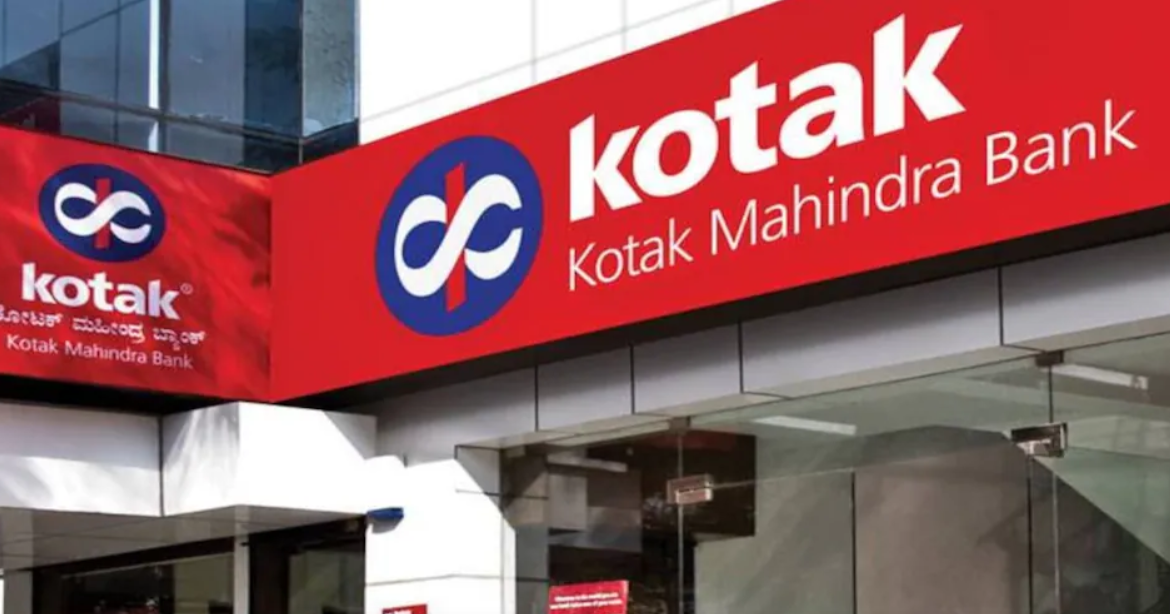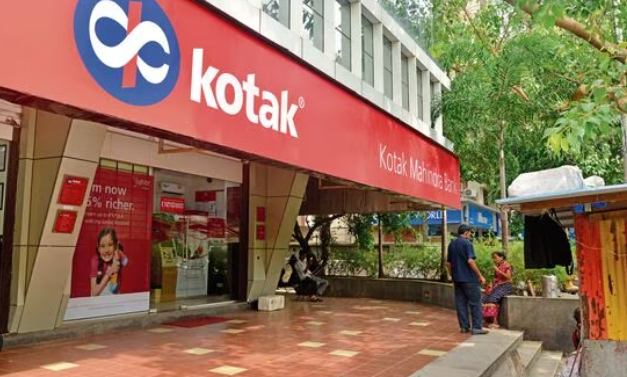Kotak Mahindra Bank
Kotak Mahindra Bank had been making big moves in the credit card arena, steadily expanding its customer base with its innovative digital strategies. Their 811 digital approach had drawn in a significant number of customers, while their aggressive push in the credit card market saw them capturing a market share of 5.8% in terms of the number of cards and 4% in spending.
However, things took a sudden turn when the Reserve Bank of India (RBI) slammed the brakes on their growth trajectory. The central bank put a halt to Kotak Mahindra Bank’s online and mobile banking customer onboarding processes and also prohibited them from issuing any new credit cards. This regulatory clampdown sent shockwaves through the bank, causing its shares to tumble by over 10% in a single day of trading.
For a bank that was riding high on its digital prowess and credit card expansion, this sudden setback serves as a sobering reminder of the regulatory risks inherent in the banking sector. It’s a tough blow for Kotak Mahindra Bank, but it also underscores the importance of regulatory compliance and risk management in the financial industry.
The news hit Kotak Mahindra Bank hard, with its shares taking a significant dive by 10%, reaching a low of Rs 1,658.75. This downturn adds to the bank’s woes, as it’s now down 13% for the year 2024. 
Analysts at Emkay Global weren’t optimistic either, as they downgraded Kotak Mahindra Bank’s rating to ‘Reduce’ and slashed their target price from Rs 1,950 to Rs 1,750. They highlighted the regulatory uncertainty looming over the bank, which could delay any hopes of a stock rerating.
YES Securities pointed out that Kotak Mahindra Bank’s strategy had included ramping up credit card issuance to boost its share of unsecured retail loans to the mid-teens in the coming years. This setback from the RBI could throw a wrench in those plans.
Motilal Oswal echoed similar sentiments, noting the bank’s strong growth in retail products driven by digital sourcing and a focus on unsecured loans. They warned that the RBI’s ban could disrupt this growth trajectory, impacting margins and overall profitability. In essence, the regulatory restrictions have put a damper on Kotak Mahindra Bank’s expansion plans, casting doubt on its future performance and leaving investors and analysts cautious about its prospects.
The recent developments surrounding Kotak Mahindra Bank (KMB) have sparked concerns among analysts and investors. Motilal Oswal, for instance, highlighted ongoing IT deficiencies flagged by the regulator, which is unusual for a bank known for its robust risk management and governance practices. Despite these concerns, they maintain a Neutral rating on the stock but have revised their target price to Rs 1,900.
The regulatory scrutiny stems from the RBI’s examination of KMB’s IT systems for the years 2022 and 2023. Unfortunately, the bank has struggled to address these concerns adequately and in a timely manner, leading to the current restrictions.
Kotak Mahindra Bank’s heavy reliance on digital channels for credit card and personal loan sales has been notable, with an overwhelming majority of new credit cards and personal loans being sold digitally. This shift has seen the proportion of unsecured loans in their portfolio increase to 11.6% in Q3FY24, aligning with the bank’s goal of reaching the mid-teens in unsecured loans mix over the fiscal year.
However, the rapid growth in digital transactions, particularly in credit cards, has strained the bank’s IT infrastructure, as highlighted by the RBI. This pressure on their systems has contributed to the regulatory concerns and subsequent restrictions.
In essence, while Kotak Mahindra Bank’s digital-focused approach has driven growth in its unsecured loan segment, it has also exposed vulnerabilities in its IT systems. Addressing these concerns will be crucial for the bank to regain regulatory confidence and sustain its growth momentum. ALSO READ: Marvel Studios Debuts New Trailer for ‘Deadpool & Wolverine’ The current restrictions on Kotak Mahindra Bank’s operations will undergo a thorough review process. This review will include a comprehensive external audit, which the bank will commission with the prior approval of the RBI. The aim is to identify and address any deficiencies highlighted in the external audit, as well as those noted in the RBI Inspection.
It’s essential to note that the bank is taking proactive steps to remedy any issues that may arise from these audits. Once the remediation process is complete and all deficiencies are addressed satisfactorily, the restrictions imposed by the RBI will be re-evaluated.
As always, it’s important to remember that the information provided by Business Today and other financial sources is for informational purposes only. It should not be considered as investment advice. Readers are encouraged to seek guidance from qualified financial advisors before making any investment decisions. Your financial well-being is too important to leave to chance, so it’s wise to consult with experts who can offer personalized advice tailored to your specific needs and circumstances.





